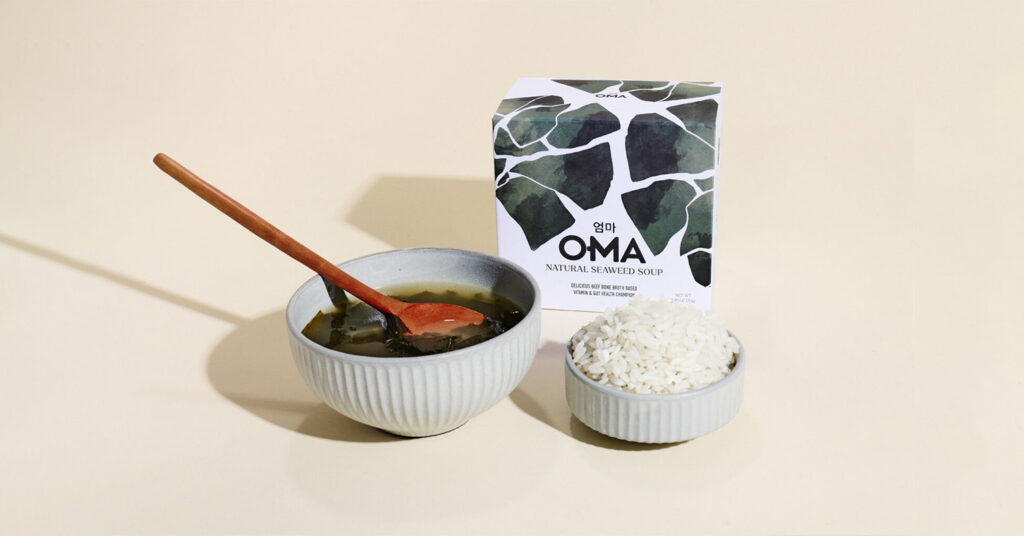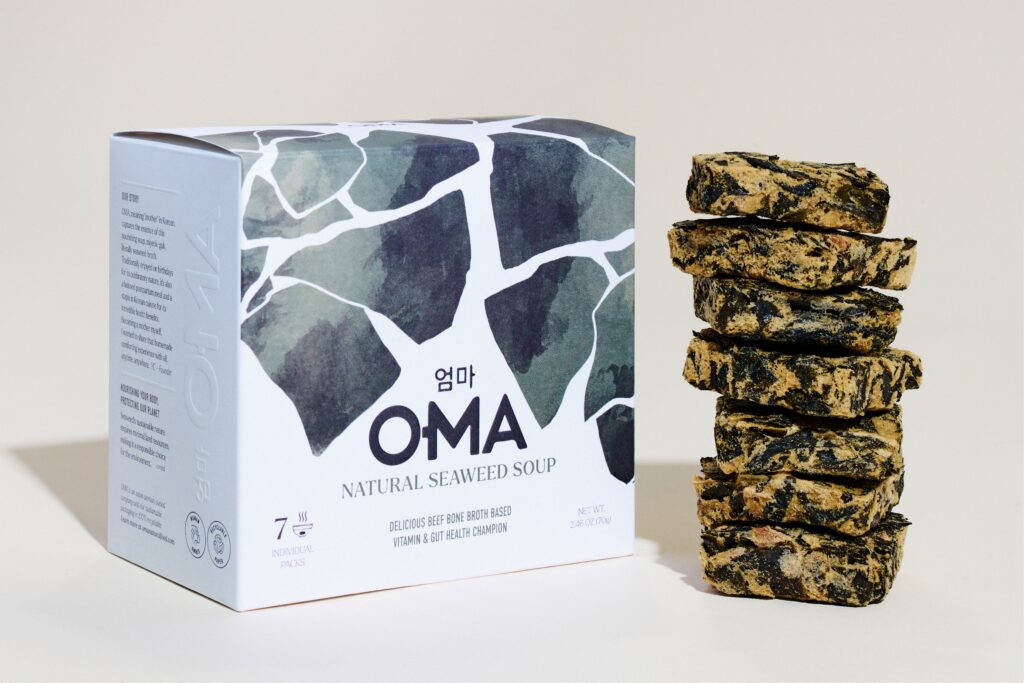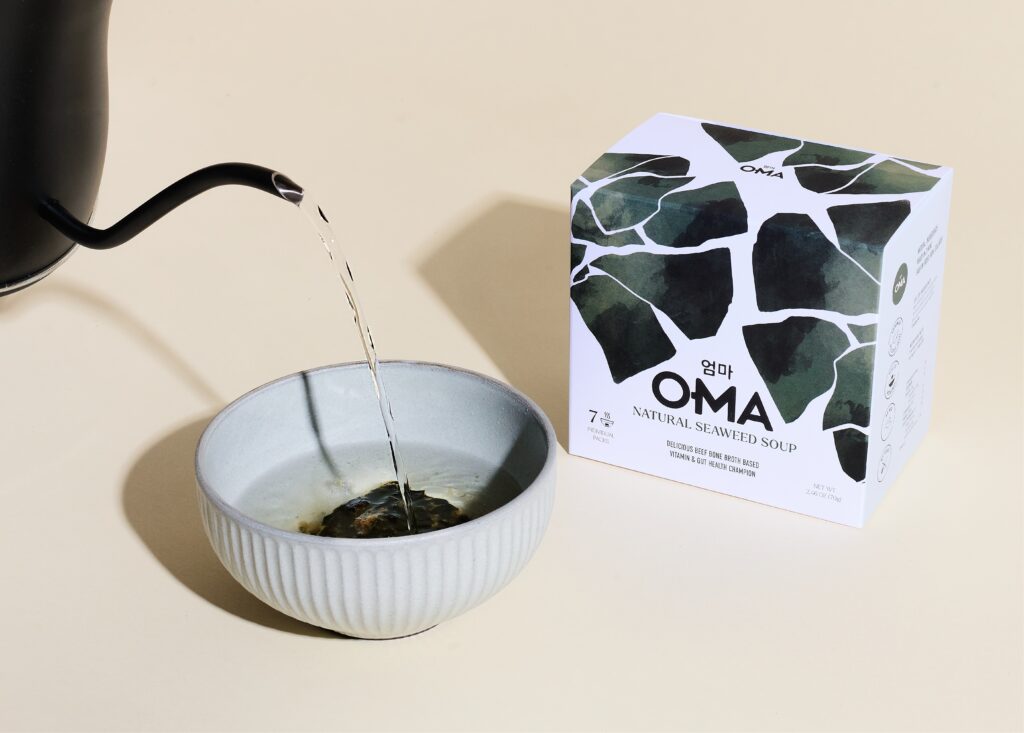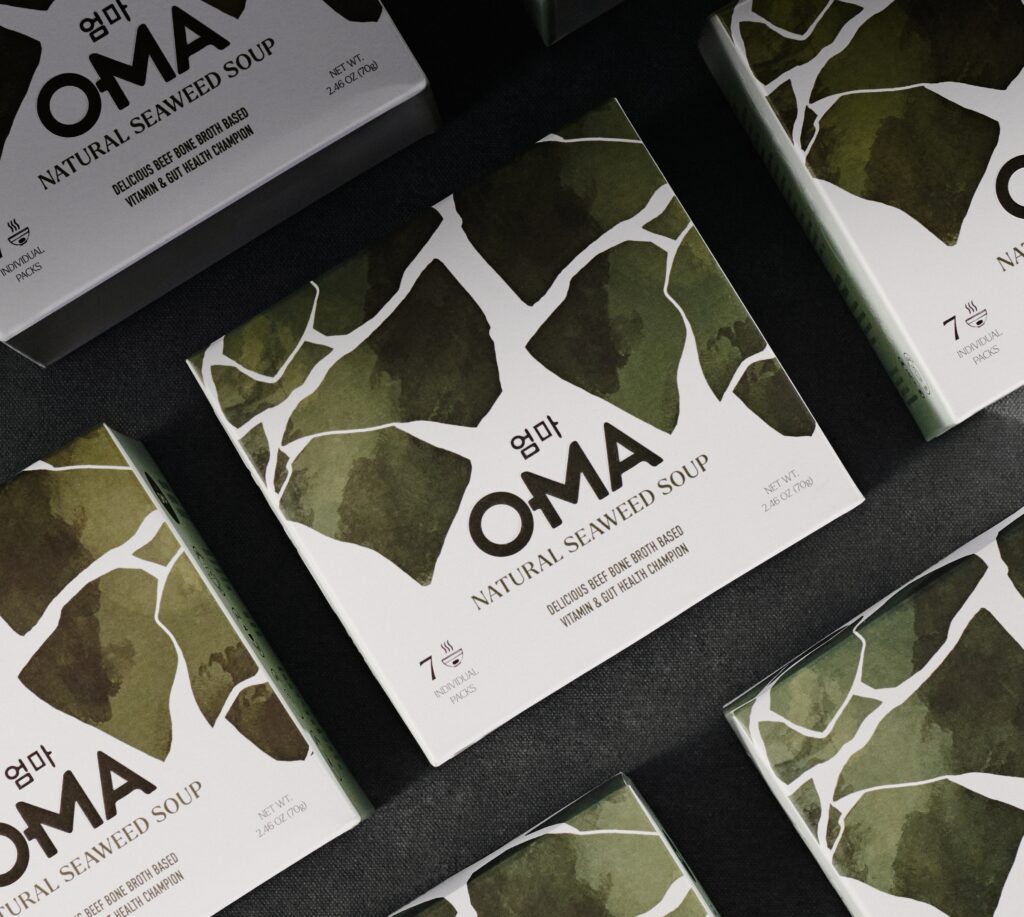Small Business Spotlight: Korean Tradition Meets Modern Convenience at OMA

After a challenging pregnancy, Yondjé Choi was lying in the hospital bed when her mother, who had flown from Paris to New York, entered the room carrying a thermos filled with homemade Korean seaweed soup, or miyeok-guk. “It was the first meal I had after giving birth. I still remember the warmth and comfort it brought me,” Choi recalls. “I felt so cared for in that moment and it was so special; I was very fortunate, super lucky that I healed fast after giving birth.”
Her personal experience with miyeok-guk sparked a passion in Choi to share this comforting tradition with a broader audience. For this Small Business Spotlight, EnVi spoke with Yondjé Choi, founder of OMA Natural Food, a groundbreaking seaweed soup brand, about bringing a cherished Korean tradition to the diverse food scene.
The Healing Tradition of Seaweed Soup in Korean Culture
In Korean culture, the role of food is deeply embedded in beliefs about health and wellness. Seaweed soup, or miyeok-guk, in particular, plays a part in aiding mothers post-partum. “That’s why when you eat with Koreans, they will be like, ‘Oh, this is good for your hair, this is good for your skin, this is good for your stomach.’ It’s really embedded in Korean culture to heal and support your health with what you eat,” Choi shares.
The name OMA itself means “mother” in Korean, and has been the guiding theme behind the brand. Seaweed, the key ingredient, helps new mothers recover by supporting thyroid health, aiding digestion, and reducing inflammation due to its rich iodine, vitamins, and minerals. Choi chose to launch her product because seaweed also has prebiotics that support gut health and is high in fiber. These benefits make seaweed soup a popular choice for new mothers.
Aside from its role in postpartum recovery, seaweed soup is also traditionally eaten on birthdays. It honors the matron figure, aids in recovery from sickness and hangovers, or acts as a quick and nourishing meal. These versatile uses inspired Choi to share the OMA product in a convenient cube form — just add it to a cup of boiling water in a bowl, cover for two minutes, stir, and enjoy.

“I thought, ‘Wouldn’t it be amazing to have a convenient, delicious, and healthy soup that’s easy to make?’ One day, I woke up and realized, this is it — miyeok-guk, the seaweed soup I want to share. I need to make it accessible to everyone, not just women, because it’s such an amazing meal that everyone can benefit from.” Choi said.
Diversifying Korean Cuisine in the Western Market
Born to Korean parents in France, Choi grew up enjoying both Korean and French cultures and traditions. After settling in New York for work, she continuously noticed a gap in the market. Plenty of Korean dishes were rising in popularity, but seaweed soup was absent from the shelves. “I know that in order of popularity, I probably should have gone with fried chicken or kimbap, because those are the most popular Korean [dishes]. But the Korean cuisine is way more than that. Don’t get me wrong, I love fried chicken, but I think we need more healthier options with nutritious broth,” Choi adds. “We deserve more diversified and healthy options that are convenient to people [who] want to expand their taste.”

OMA is the first to bring a ready-to-eat Korean seaweed soup to the U.S. market in this format. Choi notes that the product is made with 80% seaweed and beef broth, using simple, nutrient-rich ingredients without the preservatives or artificial flavors found in some other products.
The Sustainability of Seaweed
Besides its health benefits, seaweed also aligns with OMA’s commitment to sustainability and the environmental impact of its products, especially in a world where food production faces increasing challenges. OMA focuses on ingredients that are both nutritious and sustainable; seaweed is a rapidly renewable resource that can be harvested every three months.
Choi mentions that seaweed also plays a role in combating climate change by absorbing excess nutrients from polluted runoff, preventing harmful algal blooms, and improving water quality. “In a world where we are overwhelmed by the amount of food choices and where harvesting is becoming more challenging, I think it’s important to refocus on core ingredients available that are both easy to grow and harvest,” Choi said.
Looking Ahead with OMA
Choi’s transition from corporate work to entrepreneurship has been shaped by her experiences as a mother and her desire to create something meaningful. Balancing motherhood and business is challenging, but she highlights building a strong support network. Looking ahead, Choi has plans to expand OMA’s product line. Currently, the team is working on a vegetarian version of her seaweed soup and exploring new broth categories. This is on top of their focus on expanding the Korean cuisine and culture in the U.S. market.

“One thing I’ve learned is not to be afraid to ask for help. There’s so much expertise out there. Wherever you are, people will be kind and happy to share their experiences, so that’s how I navigate. At the end of the day, you also have to trust your gut. The gut is a muscle that you need to stretch. As an entrepreneur, or even as a mom, you are the only one who really knows what is good and the direction and the vision that you have,” Choi shares.
Want to know more about other women-owned businesses? Check out our small business spotlight on Stay Curious Toys here!



